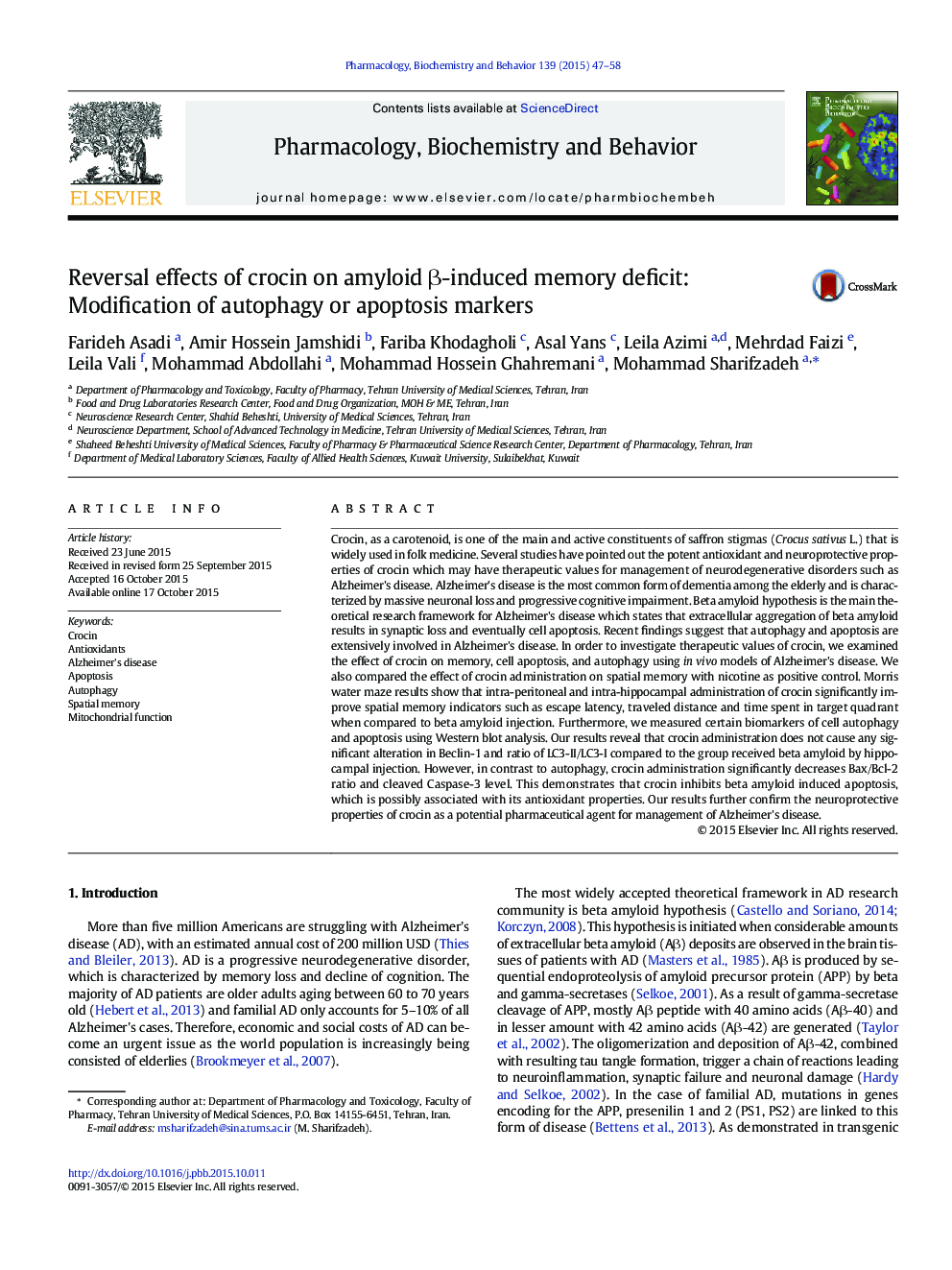| Article ID | Journal | Published Year | Pages | File Type |
|---|---|---|---|---|
| 2012693 | Pharmacology Biochemistry and Behavior | 2015 | 12 Pages |
Abstract
Crocin, as a carotenoid, is one of the main and active constituents of saffron stigmas (Crocus sativus L.) that is widely used in folk medicine. Several studies have pointed out the potent antioxidant and neuroprotective properties of crocin which may have therapeutic values for management of neurodegenerative disorders such as Alzheimer's disease. Alzheimer's disease is the most common form of dementia among the elderly and is characterized by massive neuronal loss and progressive cognitive impairment. Beta amyloid hypothesis is the main theoretical research framework for Alzheimer's disease which states that extracellular aggregation of beta amyloid results in synaptic loss and eventually cell apoptosis. Recent findings suggest that autophagy and apoptosis are extensively involved in Alzheimer's disease. In order to investigate therapeutic values of crocin, we examined the effect of crocin on memory, cell apoptosis, and autophagy using in vivo models of Alzheimer's disease. We also compared the effect of crocin administration on spatial memory with nicotine as positive control. Morris water maze results show that intra-peritoneal and intra-hippocampal administration of crocin significantly improve spatial memory indicators such as escape latency, traveled distance and time spent in target quadrant when compared to beta amyloid injection. Furthermore, we measured certain biomarkers of cell autophagy and apoptosis using Western blot analysis. Our results reveal that crocin administration does not cause any significant alteration in Beclin-1 and ratio of LC3-II/LC3-I compared to the group received beta amyloid by hippocampal injection. However, in contrast to autophagy, crocin administration significantly decreases Bax/Bcl-2 ratio and cleaved Caspase-3 level. This demonstrates that crocin inhibits beta amyloid induced apoptosis, which is possibly associated with its antioxidant properties. Our results further confirm the neuroprotective properties of crocin as a potential pharmaceutical agent for management of Alzheimer's disease.
Keywords
Related Topics
Life Sciences
Biochemistry, Genetics and Molecular Biology
Biochemistry
Authors
Farideh Asadi, Amir Hossein Jamshidi, Fariba Khodagholi, Asal Yans, Leila Azimi, Mehrdad Faizi, Leila Vali, Mohammad Abdollahi, Mohammad Hossein Ghahremani, Mohammad Sharifzadeh,
